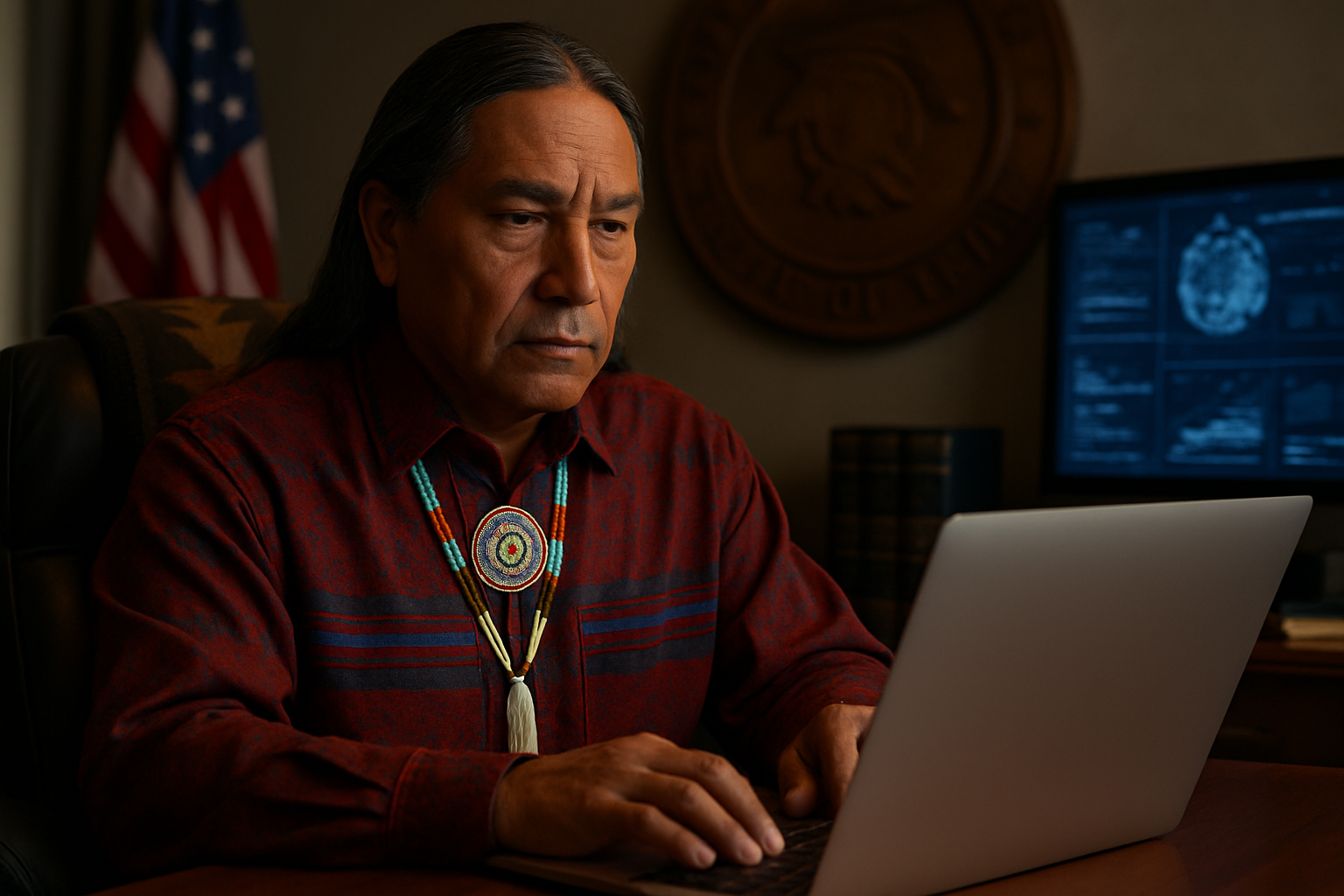Tribal Sovereignty in the Digital Age
Introduction: In an era of rapid technological advancement, Native American tribes are navigating uncharted waters as they assert their sovereignty in the digital realm. This complex intersection of tribal law, federal policy, and emerging technologies raises fascinating questions about jurisdiction, economic development, and cultural preservation in Indian Country.

The basis for tribal sovereignty can be traced back to the U.S. Constitution, which acknowledges Indian tribes as distinct political entities. Over time, the relationship between tribes and the federal government has been defined as that of domestic dependent nations, with tribes retaining significant powers of self-governance while existing under the protection of the United States.
Digital Challenges to Traditional Sovereignty
As tribes increasingly engage in online activities, from e-commerce to digital cultural preservation, they face new challenges to their sovereign status. The borderless nature of the internet complicates jurisdictional issues, raising questions about the extent of tribal authority in cyberspace.
One key area of contention is the regulation of online gaming and other e-commerce ventures operated by tribes. While tribes have long asserted their right to conduct gaming operations on tribal lands, the expansion into online platforms has led to legal disputes with states and the federal government over regulatory authority.
E-Commerce and Tribal Economic Development
The digital economy presents both opportunities and obstacles for tribal nations seeking to bolster their economic self-sufficiency. Many tribes have launched online businesses, ranging from retail operations to fintech services, leveraging their sovereign status to create unique market advantages.
However, these ventures often face legal challenges from state and federal authorities, who argue that tribal sovereignty does not extend to off-reservation activities conducted via the internet. Courts have grappled with these issues, producing a patchwork of rulings that have yet to provide clear guidance on the limits of tribal authority in e-commerce.
Data Sovereignty and Cultural Preservation
Beyond economic considerations, tribes are also asserting their sovereignty in matters of data control and cultural preservation. The concept of data sovereignty emphasizes the right of tribes to manage and protect their own information, including sensitive cultural knowledge and tribal member data.
As more tribal information is digitized and stored in the cloud, questions arise about jurisdiction over this data and the applicability of federal laws like the Indian Arts and Crafts Act in digital spaces. Tribes are developing their own data governance policies and advocating for greater control over their digital assets.
Legal Frameworks and Policy Considerations
The evolving landscape of tribal digital sovereignty necessitates new legal frameworks and policy approaches. Federal agencies, including the Federal Communications Commission and the Department of the Interior, are working to address these issues through consultations with tribes and the development of new regulations.
Some tribes have taken proactive steps by enacting their own cyberlaws and establishing digital regulatory bodies. These efforts aim to assert tribal jurisdiction over online activities while navigating the complex interplay between tribal, state, and federal law.
The Future of Tribal Sovereignty in Cyberspace
As technology continues to advance, the intersection of tribal sovereignty and the digital world will likely become even more complex. Emerging technologies like blockchain and artificial intelligence may offer new avenues for tribes to assert their sovereignty while presenting additional regulatory challenges.
The ongoing dialogue between tribes, federal authorities, and technology companies will be crucial in shaping the future of tribal digital sovereignty. As this area of law evolves, it will be essential to balance the protection of tribal rights with the need for consistent regulation in an interconnected digital ecosystem.
In conclusion, the concept of tribal sovereignty is undergoing a significant transformation in the digital age. As Native American tribes navigate this new frontier, they are redefining the boundaries of their sovereign authority and adapting centuries-old principles to the realities of the 21st century. The resolution of these complex legal and policy issues will have profound implications for tribal self-determination, economic development, and cultural preservation in the years to come.






